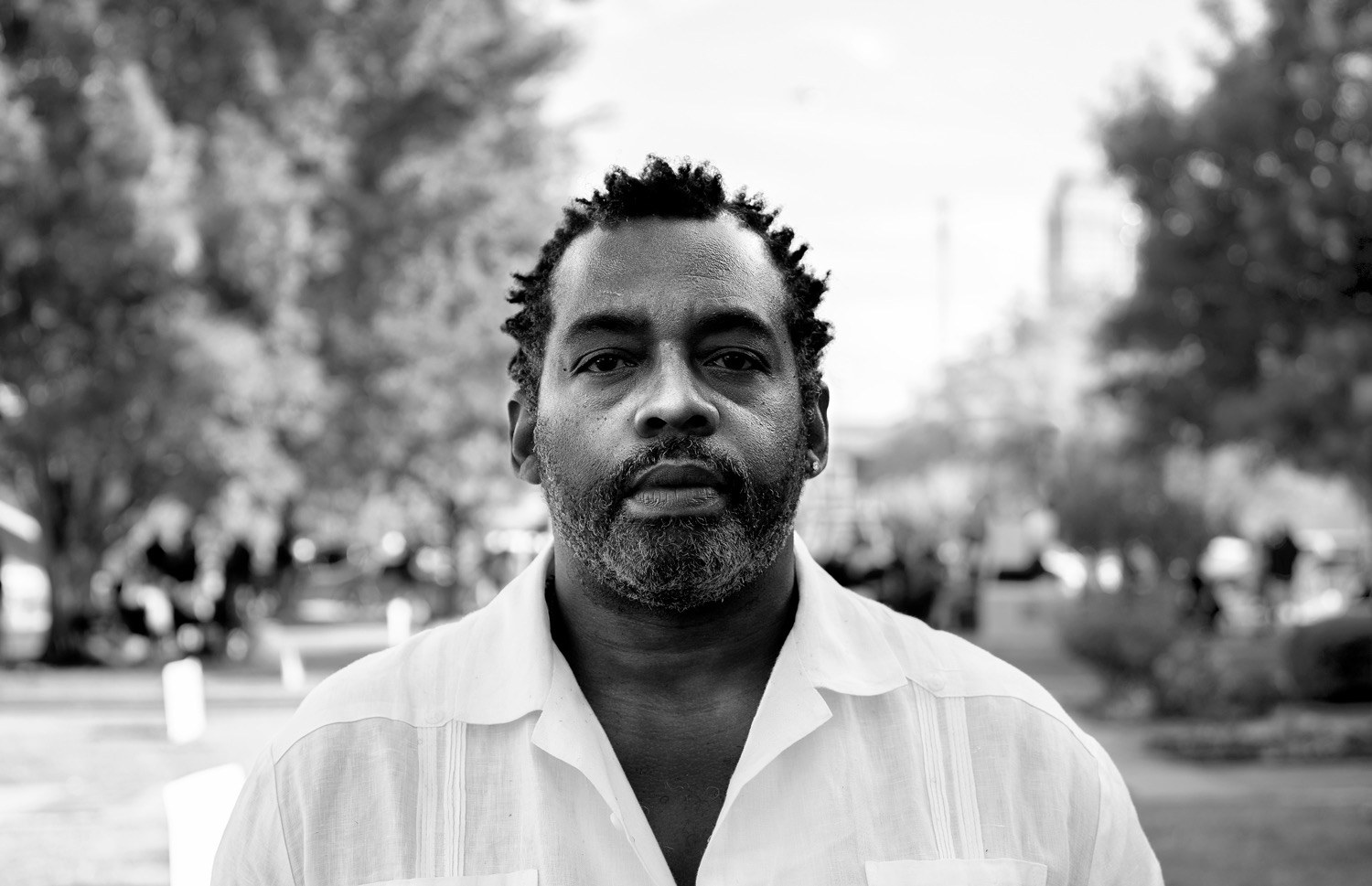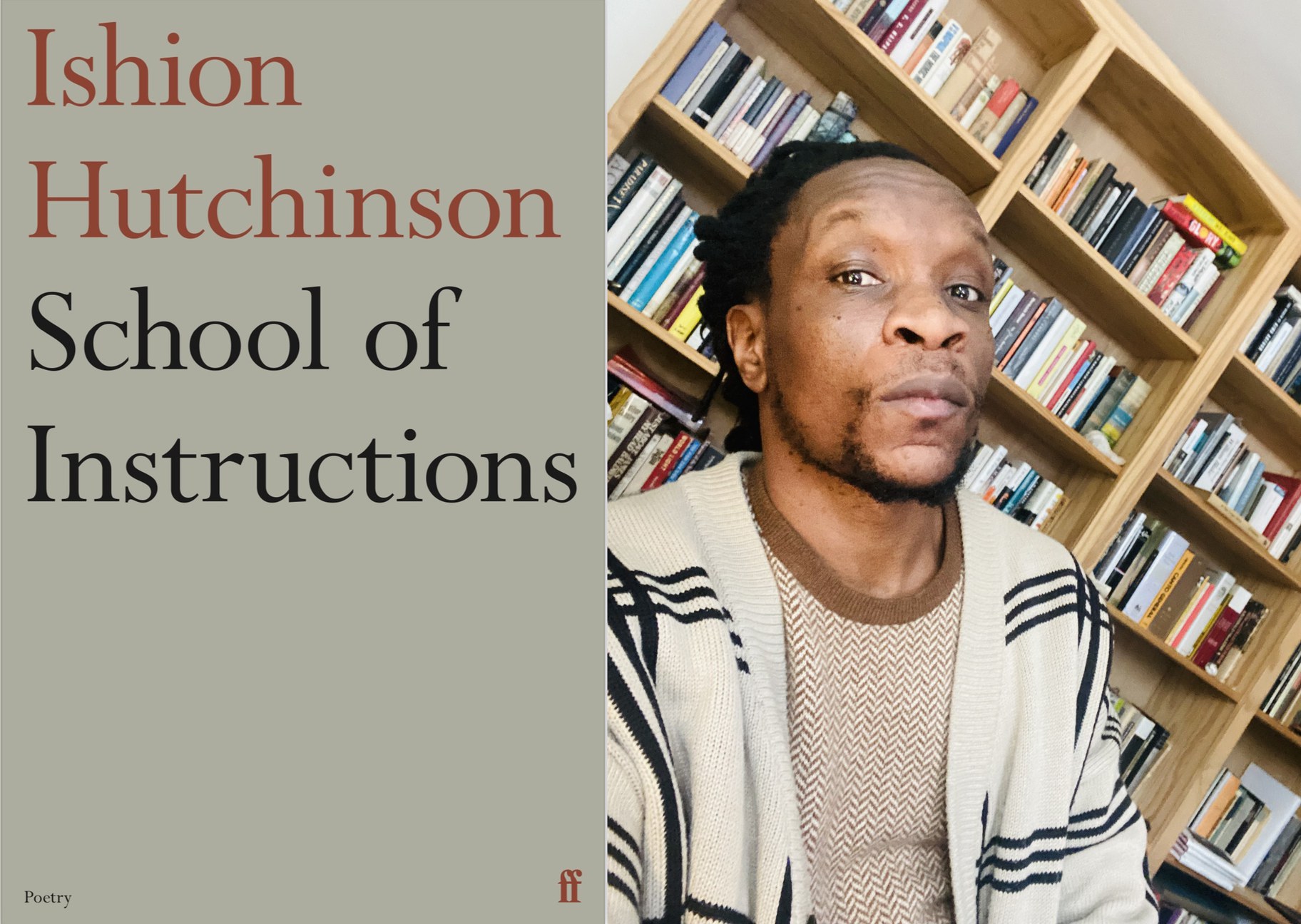Jonathan Bastian talks with two Black poets who use their craft to confront and unearth forgotten histories — from the glory days of Tulsa, Oklahoma’s Greenwood District (known as Black Wall Street), to its 1921 race massacre, to British colonialism and slavery in Jamaica.
Quraysh Ali Lansana is an author and poet whose works include “Opal’s Greenwood Oasis,” “The Skin of Dreams,” and “The Whiskey of Our Discontent: Gwendolyn Brooks as Conscience and Change Agent”. Lansana shares what it was like growing up west of Tulsa in the deeply segregated town of Enid, and how he was never taught about Oklahoma’s full and dark history while in school.

“The stigma about North Tulsa, Black Tulsa, Greenwood is just as alive and well today as it was in 1920, 1921,” says poet Quraysh Ali Lansana, pictured here. Photo Credit: Thomas Ryan RedCorn
Introduced to poetry in school and inspired by Beowulf, the works of Gwendolyn Brooks, rap, and other music, Lansana turned to poetry to observe, educate, and unearth some of Oklahoma’s forgotten past. “Learn from the past,” Lansana says, “so the future can be better.”
Of Brooks, Lansana says, “She was about exactness, there are no wasted words, the words have to do the work you intend for them to do, in that place, in that moment. And if the words are not doing that work, change that word.
“She really instilled in me the idea that we need to watch, look and see and hear and pay attention because much of what feeds us and informs us is outside the door, we just have to be open and aware enough to, to hear it to see it to listen.”
Bastian also speaks with Ishion Hutchinson, associate professor and Director of Creative Writing at Cornell University, about his poetry and forthcoming collection of poems “School of Instructions,” due out in the fall. Hutchinson, who was born in Port Antonio, Jamaica, draws on his Jamaican roots and cites a photograph in the archives of the Imperial War Museum in London as inspiration to memorialize a forgotten period in time in his work — in particular, the period of World War I when thousands of West Indian soldiers were made to serve in the British Army, many of whom never returned home.
“I identified very quickly with that image and felt a deep sympathy for them,” says Hutchinson. “Because here are young men who are giving the ultimate sacrifice for what? For what? Because they're fighting in British regiments, their former overlords. So that contradiction really, really bothered me.”
Hutchinson shares how Jamaica’s history with slavery impacted its people’s identity and the joy of celebration.
“Rather than rush to get to the fields, they would sort of drag their feet and lothe. That's still an aspect of Jamaican identity, in that we like to take it slow, and I think of that as a form of resistance,” he says. “The love of music, the love of festivity, the love of fun, the love of company — that's very strong and present in Jamaican communities across the island. And it's a mode of resistance that emerged out of slavery.”
He also discusses how Jamaican music, culture, and art has impacted his own writing.
“My syntax, my cadence, my rhythm is deeply inflected by various forms of Jamaican music,” he says. “Jamaican music emerged out of a sort of emancipation… Festivities that sprung up in the 1830s, when Jamaica gained independence from emancipation from Britain.”

“As a poet, my position is one of confrontation and celebration,” says Hutchinson, pictured here. “Confronting what needs to be confronted, celebrating what needs to be celebrated.” Photo courtesy of Ishion Hutchinson. In his forthcoming collection of poems “School of Instructions,” due out in the fall of 2023, poet Ishion Hutchinson says, “o’ne can easily write an essay or a prose passage that gives you enough information in detail about a certain experience, but how do you make that experience come alive … resurrect it? So this is a process of excavation.”
Delve deeper into life, philosophy, and what makes us human by joining the Life Examined discussion group on Facebook.
